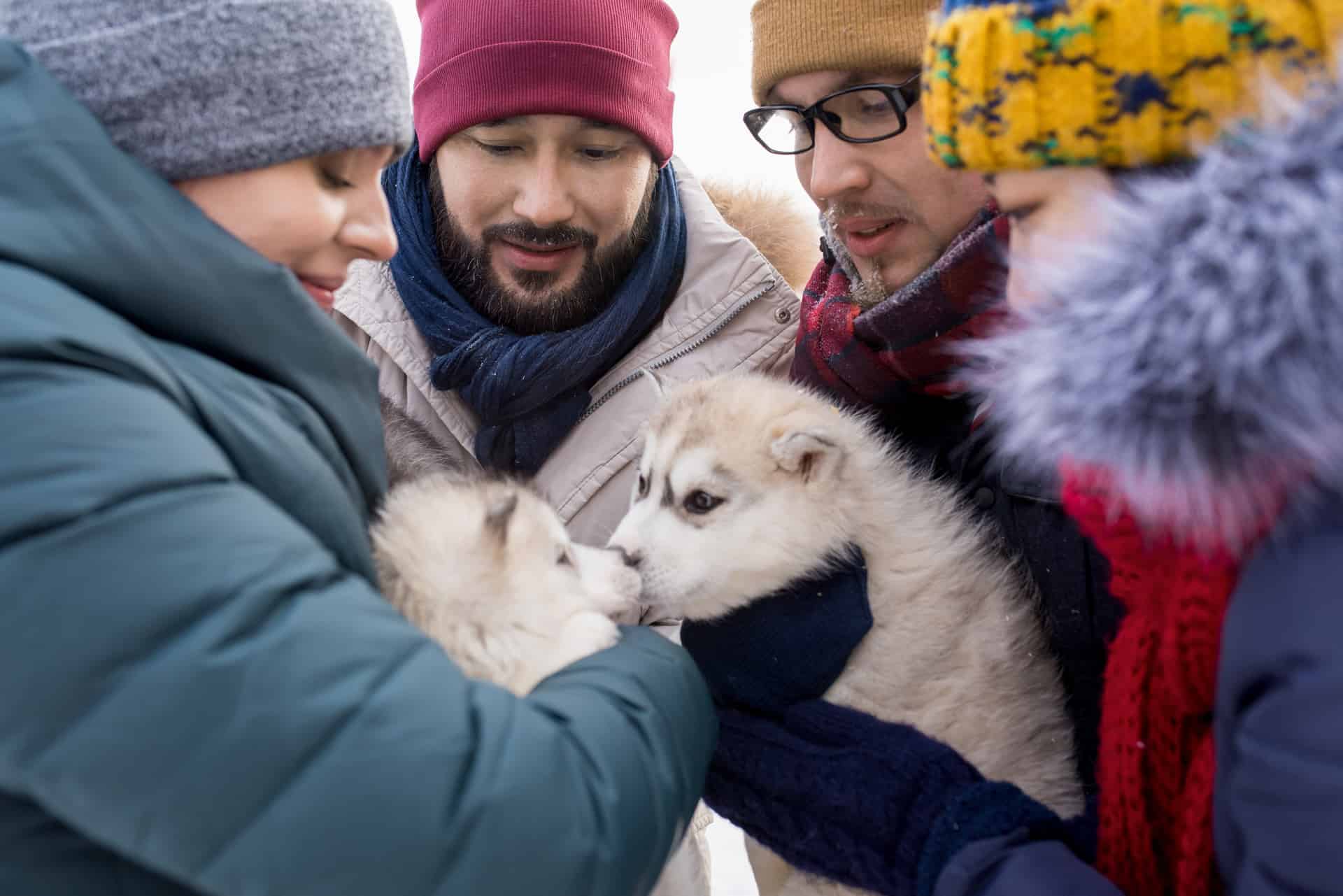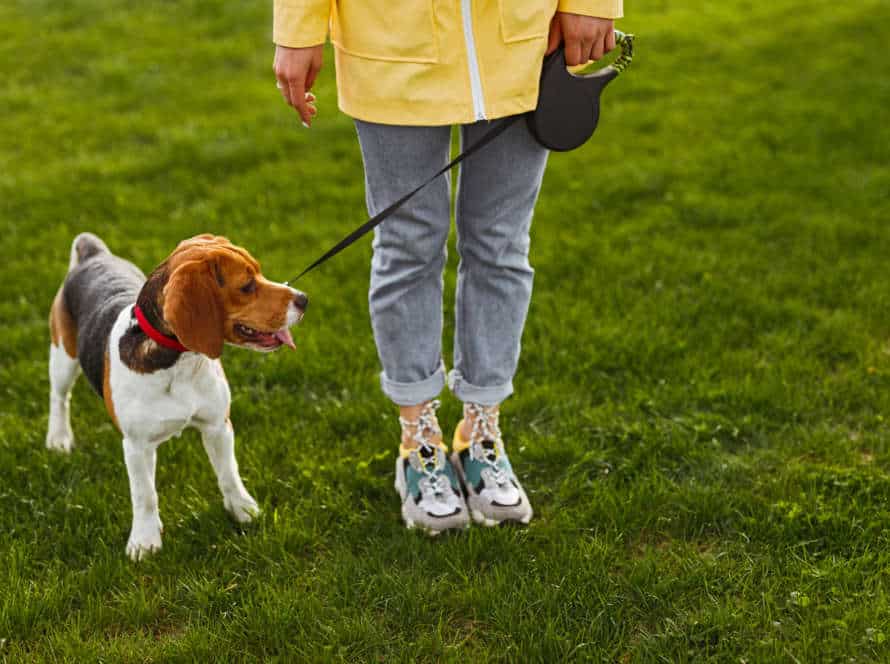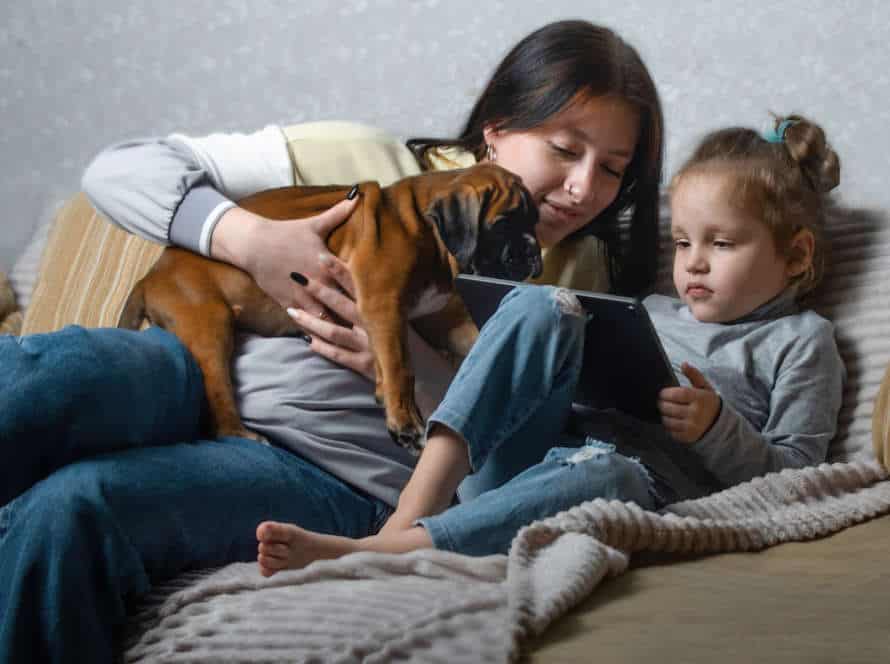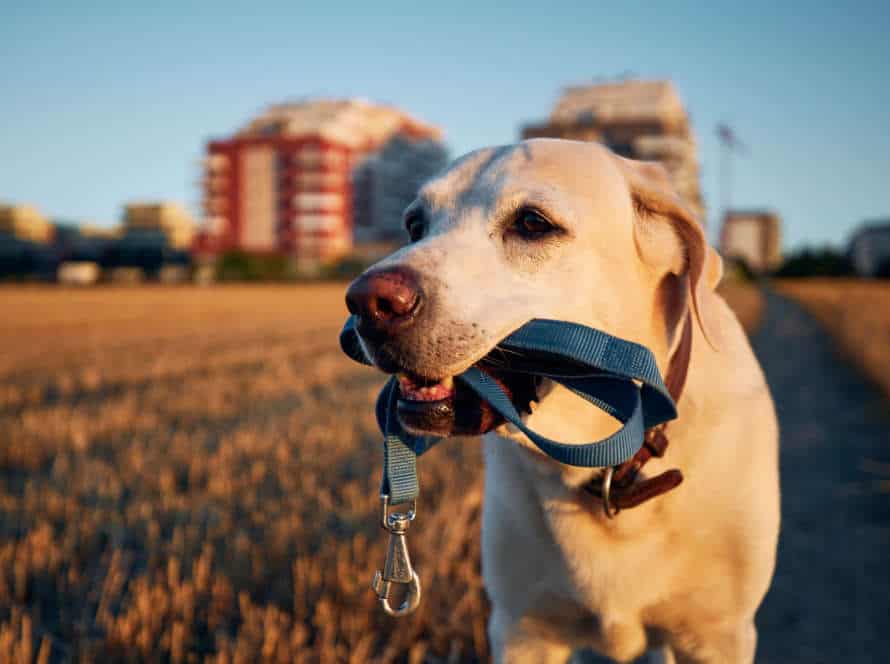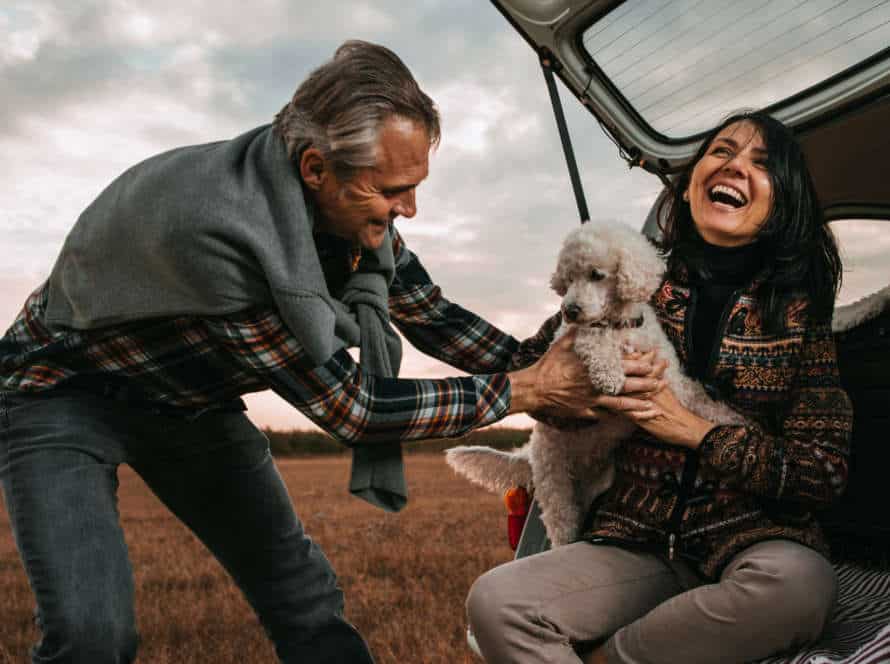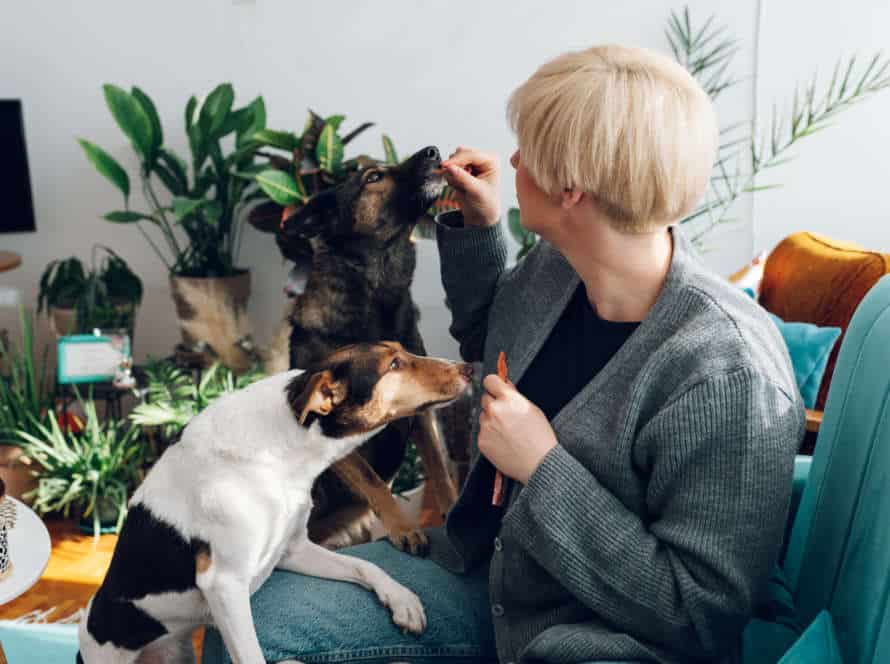Understanding the Importance of Socialization
Socialization is important for getting rid of fear. It also helps us build better relationships and a stronger sense of self. This article will look at how socialization can be used to battle fear and build meaningful bonds. It will also look at how timely socialization can reduce fear and help us form better connections.
What is socialization in animals?
Socialization in animals is the process of learning to interact. It’s important for development of social skills and overall wellbeing.
Timing is key. It helps build resilience, adaptability, and behavioral flexibility. This can avoid fears and other issues.
The need for socialization varies on species. Dogs need a lot from an early age, to learn good manners, build confidence, and reduce separation anxiety. Cats need less but still benefit from play and enrichment.
Socialization is important for animal welfare. It leads to happier, healthier pets. Following breed-specific guidelines and seeking professional help is recommended.
Effects of lack of socialization
Lack of socialization can lead to behavioral and emotional issues in children and pets. Kids who don’t get regular socialization may have trouble connecting with others, and difficulty expressing emotions. Pets, too, may show aggressive or anxious behavior if not socialized properly. The importance of socialization cannot be stressed enough.
Through regularly exposing kids and pets to different social situations, they can learn essential skills. This can help them become more comfortable in different environments, and cope better with new experiences. Socialization can also help them with common fears such as anxiety, aggression and self-doubt, and make them more confident individuals.
Common misconceptions about socialization
Socialization is key for pets to be content and healthy. But, pet owners can have incorrect ideas about socialization that can impede their pet’s progress.
Misconception #1: Socialization isn’t important for pets.
Misconception #2: Socialization only happens during a pet’s early stages.
Misconception #3: Socialization means exposing pets to lots of people and animals.
Misconception #4: Shy pets cannot be socialized.
By knowing the importance of socialization and getting rid of wrong ideas with timely socialization, pets can live a balanced, happy life.
Pro tip: Get help from certified trainers or behaviorists to socialize your pet effectively.
Socialization in Puppies
Socializing a pup is a must! It helps them grow better. If done right, it can make them calm and confident in unusual spots. Timely socialization can help avoid common fears such as strangers, loud sounds, and odd items. This article will explain the best ways to socialize a pup and how it can help them with their fears.
Ideal Socialization Period for Puppies
The best age for socializing puppies is 3-14 weeks. During this time, they are more open to new things and less likely to be scared of unknown people, animals, and places. Here are a few tips:
- Introduce them to new sights, sounds, textures, and smells in a calm and nice atmosphere.
- Let them meet other vaccinated and friendly puppies and dogs.
- Encourage them to be around different types of humans, such as kids, adults, and the elderly.
- Give them plenty of chances for play, exercise, and mental activities so they become confident and less anxious.
- Keep them away from negative or traumatic events that could make them fearful or aggressive.
- Remember, socializing is an ongoing process that demands patience, constancy, and positive reinforcements.
Ensuring a Safe and Positive Socialization Experience
Socializing your pup is key! Get them used to people, animals & environments in a positive & safe way. Here’s how:
- Start early! 3-14 weeks old is the socialization period, so begin during this time.
- Stay positive! Use treats & praise to encourage good behavior.
- Take it slow! Introduce new things gradually, at a pace your pup is comfortable with.
- Avoid overwhelming stimuli. Too much can cause fear & anxiety.
- Monitor body language. Watch for signs of comfort or discomfort.
- Practice regularly. Make socialization a part of your pup’s routine.
With these tips, you can prevent fears & anxieties in your pup & have a happy, well-adjusted dog!
Common Mistakes to Avoid during Puppy Socialization
Socializing a pup is super important for their growth into a calm, adult pooch. Make sure to avoid these common mistakes when socializing your doggy:
- Don’t let them meet strangers or dogs in a place they’re not used to. Train them in a safe place with positive reinforcement.
- Don’t overwhelm them with too much socialization. Too much can cause fear, aggression, and anxiety.
- Don’t miss out on the critical period of socialization, which is between 3-14 weeks. If you don’t socialize them enough during this time, they may have issues later.
- Don’t skip out on socialization opportunities. Make sure to introduce your pup to different environments and sounds to create a confident and happy adult dog.
Pro Tip: Sign up for a puppy socialization class to make sure your pup is socializing in a safe, positive atmosphere.
Socialization in Adult Dogs
Often, adult canines get overlooked when it comes to socialization. Yet, it is essential to help them get used to unfamiliar experiences. Early socialization can stop pooches from being scared of people or situations they experience as they mature. This article will investigate the advantages of socializing adult dogs and how to do it quickly.
Importance of Continuing Socialization into Adulthood
It is vital to socialize dogs into adulthood. This helps prevent fears and keeps their temperament stable.
Why? Adult dogs that don’t get enough socialization can become anxious and hard to train.
Continuous exposure to people, other animals and new environments builds confidence and reinforces puppy training.
Socializing can also make a dog more obedient, help with recall and response to their owners.
So, keep exposing your adult dog to new and positive experiences. Take them on walks, introduce them to strangers and animals and have them take part in positive interactions.
Helping Fearful or Reactive Dogs Through Socialization
Socialization is essential for fearful or reactive adult dogs. It helps them conquer their worries and build confidence in various circumstances. Follow these tips:
- Begin with tiny steps. Expose the dog to low-pressure situations, then gradually increase complexity.
- Reward calm, relaxed behavior with treats, praise, or toys.
- Take it slow. If your dog is anxious, pull back and try again later.
- Regular training is essential. Be patient, don’t give up.
- Remember, every dog is unique. If needed, seek assistance from a professional trainer or behaviorist.
Overcoming Challenges in Socializing an Adult Dog
Socializing your adult dog can be tough. Fears and bad behaviour will be in the way. But, with time and patience you can help them overcome these issues and have a social life.
Here are some tips:
- Start in a low-stress area. Slowly increase the exposure to new people, places, and things.
- Use positive reinforcements. Give rewards for good behaviour and reduce the treats as your dog gets more socialized.
- Talk to an expert for advice and support.
Patience and dedication will help even the most fearful dog become friendly and social.
Socialization for Dogs with Special Needs
Socialization is key for pup growth. It’s even more crucial for puppies with special needs. With proper training and socialization, these puppies can learn to overcome their anxieties. They can also gain necessary life skills! In this article, we’ll look at how socialization helps puppies with special requirements.
Dogs with a History of Trauma or Abuse
Dogs that have faced trauma need special methods for socialization. Here are some tips:
- Start off slowly. Let the dog get used to the environment before introducing them to new people or animals.
- Give rewards and compliments for good behavior.
- Step by step, increase the level of noise or number of people around them.
- No punishment; it could backfire.
- Get help from a specialist in treating animals that have suffered trauma.
- Remember: Consistency is crucial. Be persistent and create a routine to make the dog feel safe.
Socialization for Dogs with Disabilities
Socializing dogs with disabilities is a must! Here are some tips to help out:
- Start off slow. Let your pup get used to new people, animals, sights, and sounds gradually. Small quantities work best.
- Reward good behavior! It’s important to give treats, praise, and affection when they show positive behavior around new people or situations.
- Patience is key. Dogs with disabilities may take more time to adjust. Be patient and don’t give up on socializing them.
- Professional help is an option. If you need help, look for trainers or vets with special needs dog experience.
- Remember, socialization isn’t just about exposing your dog. It’s about making them feel safe and comfy too.
Socialization for Senior Dogs
Puppies need it and senior dogs benefit too. Socializing is great, but you need to be mindful of their special needs. Here’s how:
- Start off slow in a quiet space.
- Gradually work up the time and intensity.
- Don’t overload them.
- Use positive reinforcement to reward good behavior.
- Also, pay attention to body language and adjust.
Socialization helps keep them physically and mentally healthy. It can ward off boredom too. Pro tip: consult your vet before starting.
Tips and Techniques for Successful Socialization
Socialization is essential. It can bring fears and worries, though. Accept these anxieties and address them promptly. Doing so will help you to conquer them and thrive in social settings. Here are some tips to support you:
Structured Socialization Opportunities
Socializing your pet can make them a confident and behaved companion. Here’s how to do it:
- Start young – Puppies and kittens are most open to new experiences between 3-14 weeks.
- Go slow – Introduce them to new animals, people and environments, starting with familiar surroundings and progressing to more difficult ones.
- Reward good behavior – Use treats or praise to reward good behavior and show them they’re doing the right thing.
- Supervise – Be present to make sure your pet is safe, comfortable and enjoying themselves.
Pro Tip: Socialization is an ongoing process. With time and effort, you can help your pet become confident and well-adjusted.
Practicing Good Socialization Etiquette
It’s key to practice excellent socializing decorum so interactions with people from diverse backgrounds and cultures are respectful and enjoyable for all. Here are some tips to upgrade your socializing skills and dodge common fears:
- Have an open mind and be understanding of diverse opinions and cultures.
- Don’t interrupt or talk over others. Instead, actively listen and take part in constructive conversations.
- Smile, make eye contact, and face the person you’re talking to. These are positive body language cues.
- Practice good hygiene and dress according to the situation.
- Keep away from contentious or delicate topics that may irritate others.
By following these socializing etiquette tips, you can create meaningful connections with others and gain insight into various cultures and perspectives.
Working with a Professional Dog Trainer or Behaviorist.
Gettin’ help from a pro dog trainer or behaviorist can make a radical difference in socializing your four-legged mate. Here’s a few tips n’ tricks to keep in mind:
- Choose an experienced, certified trainer/behaviorist who’s worked with your pup’s breed.
- Put together a plan that meets your pup’s particular worries and fears.
- Start socializin’ your pup as soon as you can to avoid typical fears, like separation anxiety, aggression, or loud noises.
- Be patient and consistent, givin’ them rewards for good behavior.
- Chat with your trainer/behaviorist regularly, adjustin’ the plan if need be.
- Remember, socializing is a long-term thing, not a one-time gig. With a pro, you can make sure your pup gets the training and socializing to be a joyous, adjusted part of your fam.
Frequently Asked Questions
Q: What is socialization?
A: Socialization is the process through which an individual learns how to interact with others in their environment; it involves acquiring the necessary skills to participate in social activities and relationships.
Q: Why is socialization important?
A: Socialization is important because it helps individuals to build strong relationships, develop their self-esteem and confidence, and understand how to navigate their environment effectively. Timely socialization can also help to reduce fears and anxieties related to being around others.
Q: What are some common fears associated with socialization?
A: Common fears include speaking in public, meeting new people, being in crowded places, and fear of rejection or ridicule.
Q: How can timely socialization help to reduce fears?
A: Timely socialization can help individuals to become more comfortable with social situations by gradually exposing them to different social settings and activities. This can help to reduce anxieties associated with meeting new people, speaking in public, and being in crowded places.
Q: What are some tips for avoiding common fears through timely socialization?
A: Some tips include starting with small, low-pressure social events, setting achievable goals, practicing relaxation and breathing techniques, and finding a supportive social network.

